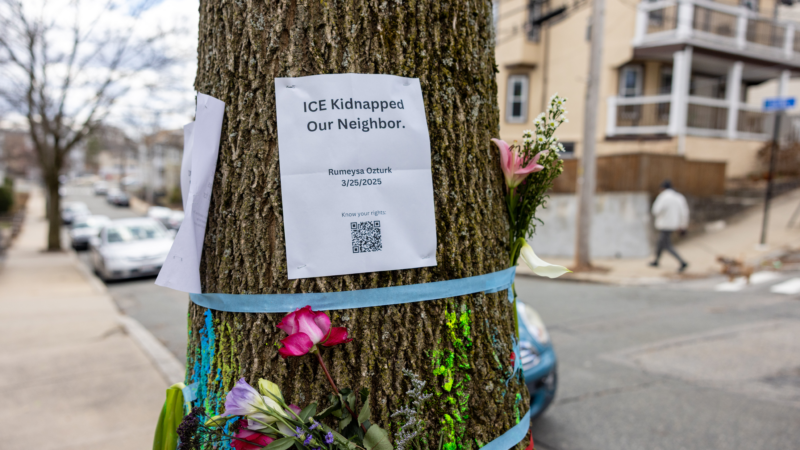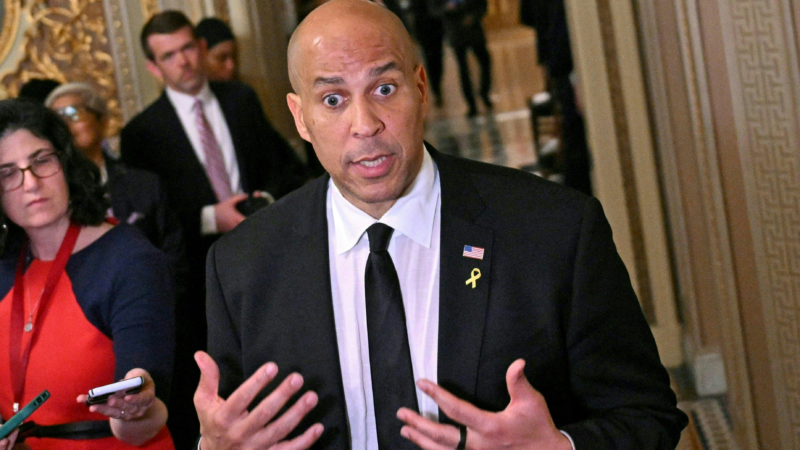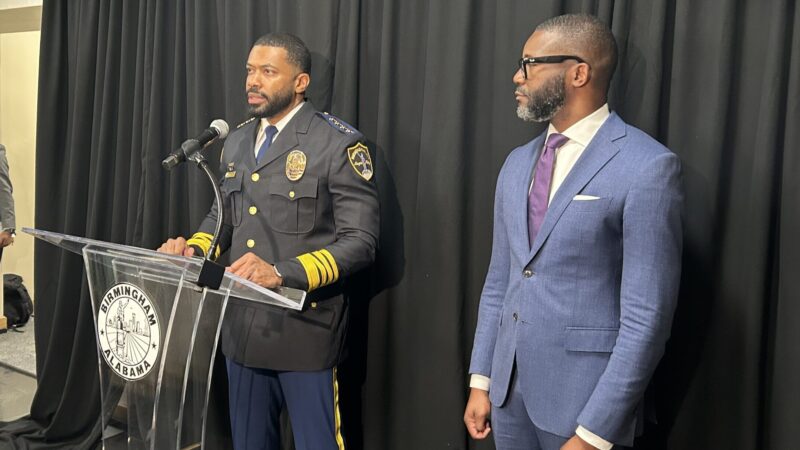New Book Chronicles History of Ruffner Mountain
Birmingham owes its existence to mining. The close proximity of coal, limestone and iron fueled a steel industry that dominated the city for decades. But as those industries faded in importance, nature reclaimed some of those closed mines. Ruffner Mountain Nature Preserve on Birmingham’s east side is one of them. Author Mark Kelly chronicled the preserve’s history in his book “Back to Nature: A History of Birmingham’s Ruffner Mountain.” He spoke with WBHM’s Andrew Yeager.
Treasure in the Mountain
The preserve’s namesake, William Henry Ruffner, was not an Alabama native. The Virginian was something of a Renaissance man as the first superintendent of Virginia’s public school system, a minister and amateur geologist. He arrived in Birmingham in 1882 to survey mineral deposits.
“He wrote about riding in through Red Gap [near current-day Gate City] for the first time and seeing the outcrops of iron ore. The deposits were so rich,” Kelly says. “[He was] very influential on the way this community developed.”
Ruffner Mountain was named for him around 1910. Mining took place there from the late 1880s until the Great Depression in 1929. Another attempt at mining Ruffner took place around 1950, but only for a few years.
The mountain lay mostly untouched except for outdoor types quietly venturing over the rocks on their own. Birmingham received a sudden reminder of Ruffner’s past in 1971. Something set off explosives left on the mountain from the mining era.
“People still talk about it,” Kelly says. “It actually took place on the Irondale side of the mountain and it broke windows in East Lake.”
“Back to Nature”
Ruffner’s transition to an official nature preserve started in 1977 when a developer bought 28 acres to build an apartment complex. Residents in the neighborhood organized to oppose the development. They succeeded in keeping the proposed apartments out and that spawned the idea of making the mountain a nature preserve.
They lobbied city leaders, found support, and within a matter of months, the city purchased the initial track of property for Ruffner Mountain Nature Preserve. The preserve has since expanded to about 1,000 acres.
Kelly says for about 10 years everything went right. Ruffner gained in popularity. The preserve hosted educational programs. But by the late 80s, white flight from Birmingham was taking a toll. And the Ruffner organization was in transition.
“A lot of the people who in the mid-70s were very, very, very involved in helping to preserve this property and build up the nature center sort of began to age out of being active in that way,” Kelly says.
The Great Recession in 2008 also hit Ruffner hard.
“There were several years of tight budgets and some question about the future of the nature center,” Kelly says. “I don’t think it’s an exaggeration to say it was a time of real crisis.”
Ruffner experienced a revolving door of leaders. At one point, the City of Birmingham pulled its funding. But Kelly says the nature preserve has rebounded from that.
“I think that Ruffner has begun to reassert itself as the resource that it is for this community,” Kelly says.
Photo by Rob Briscoe
Tesla’s quarterly sales fall 13%. Experts blame Musk
The disappointing global deliveries of the company's electric car models come as CEO Elon Musk's role as President Trump's cost-cutting czar sparks a backlash among consumers.
Legal scholar sees immigrant arrests as a ‘struggle for the soul of the country’
As ICE agents arrest international students at campuses across the U.S., professor Daniel Kanstroom discusses the law — and the human cost. He says the round-ups are designed to "send a message."
Hardcore has never been more visible. For Scowl, it’s an opportunity to keep expanding it
Over the last few years, hardcore has transformed from an underground subculture into a mainstream phenomenon. Scowl is one of the unwitting torchbearers for this paradigm shift, but their success hasn't come without tension.
See the moment Sen. Cory Booker broke Strom Thurmond’s record
As he broke a record set when Thurmond stood against the Civil Rights Act, Booker said, "I'm not here, though, because of his speech. I'm here despite his speech. I'm here because, as powerful as he was, the people were more powerful."
5 takeaways from Tuesday’s elections, including bad news for Elon Musk
Democrats can take yesterday's elections as one of the first bits of good news they've had in months. But there are lots of issues that are still center-right, including immigration.
Birmingham names new police chief
After a four month wait, Birmingham has a new police chief. Tuesday morning, Mayor Randall Woodfin announced that interim chief Michael Pickett is taking on the role permanently.






